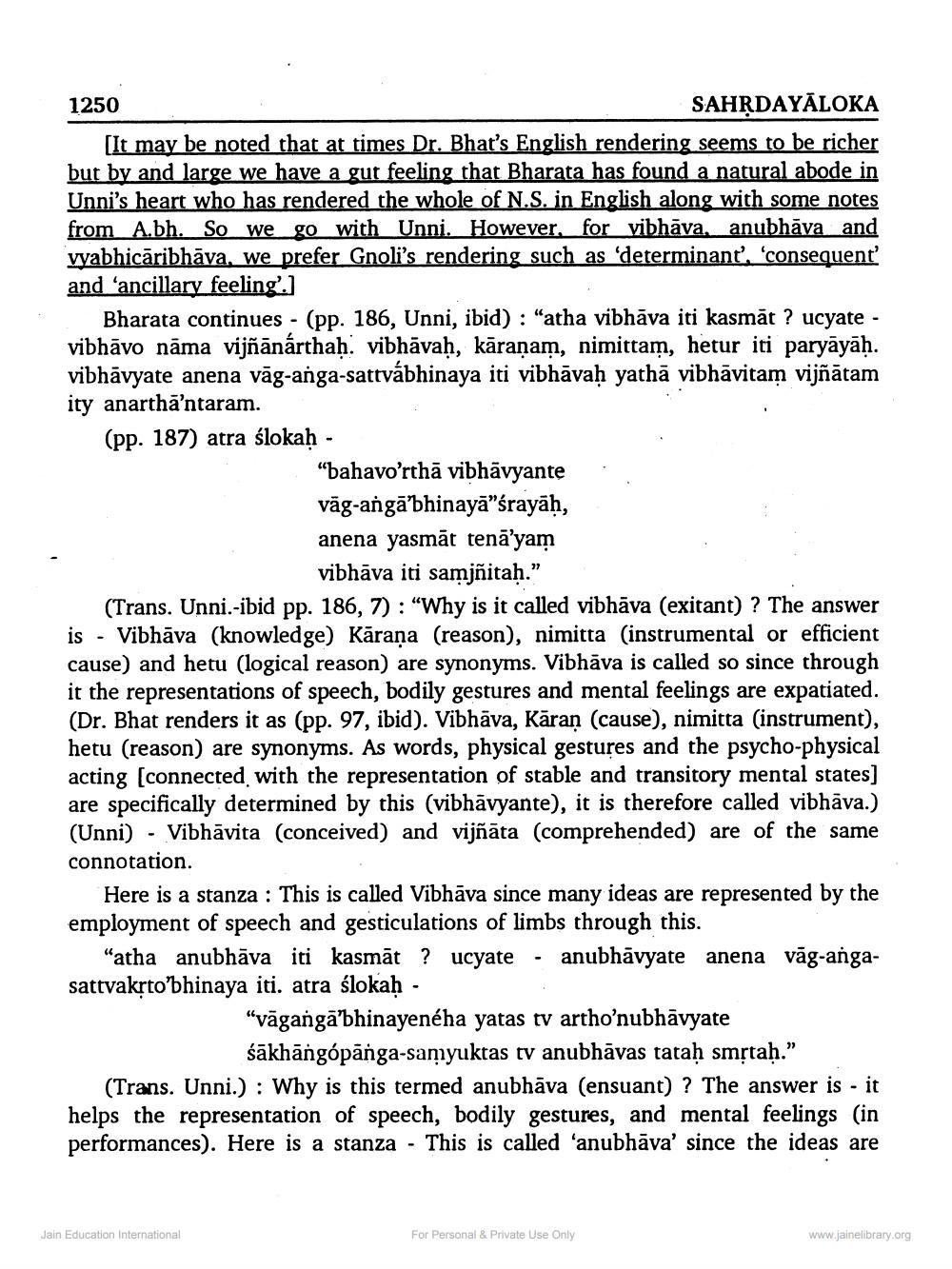________________
1250
SAHRDAYĀLOKA
[It may be noted that at times Dr. Bhat's English rendering seems to be richer but by and large we have a gut feeling that Bharata has found a natural abode in Unni's heart who has rendered the whole of N.S. in English along with some notes from A.bh. So we go with Unni. However, for vibhāva. anubhāva and wabhicāribhāva, we prefer Gnoli's rendering such as determinant. 'consequent and 'ancillary feeling'.)
Bharata continues - (pp. 186, Unni, ibid): "atha vibhāva iti kasmāt? ucyate - vibhāvo nāma vijñānárthaḥ, vibhāvaḥ, kāraṇam, nimittam, hetur iti paryāyāḥ. vibhāvyate anena vāg-anga-sattvábhinaya iti vibhāvah yathā vibhāvitam vijñātam ity anarthā'ntaram. (pp. 187) atra ślokaḥ -
“bahavo'rthā vibhāvyante vāg-angā’bhinayā”śrayāḥ, anena yasmāt tenā’yam
vibhāva iti samjñitah.” (Trans. Unni.-ibid pp. 186, 7): “Why is it called vibhāva (exitant) ? The answer is - Vibhāva (knowledge) Kārana (reason), nimitta (instrumental or efficient cause) and hetu (logical reason) are synonyms. Vibhāva is called so since through it the representations of speech, bodily gestures and mental feelings are expatiated (Dr. Bhat renders it as (pp. 97, ibid). Vibhāva, Kāran (cause), nimitta (instrument), hetu (reason) are synonyms. As words, physical gestures and the psycho-physical acting (connected with the representation of stable and transitory mental states] are specifically determined by this (vibhāvyante), it is therefore called vibhāva.) (Unni) - Vibhāvita (conceived) and vijñāta (comprehended) are of the same connotation.
Here is a stanza : This is called Vibhāva since many ideas are represented by the employment of speech and gesticulations of limbs through this.
"atha anubhāva iti kasmāt ? ucyate · anubhāvyate anena vāg-angasattvakrto'bhinaya iti. atra ślokah
"vāgangā’bhinayenéha yatas tv artho’nubhāvyate
śākhāngópānga-samyuktas tv anubhāvas tataḥ smộtaḥ.” (Trans. Unni.) : Why is this termed anubhāva (ensuant) ? The answer is - it helps the representation of speech, bodily gestures, and mental feelings in performances). Here is a stanza - This is called 'anubhāva' since the ideas are
Jain Education International
For Personal & Private Use Only
www.jainelibrary.org




